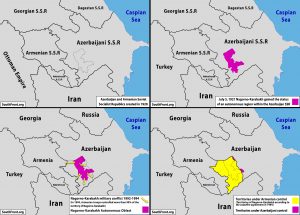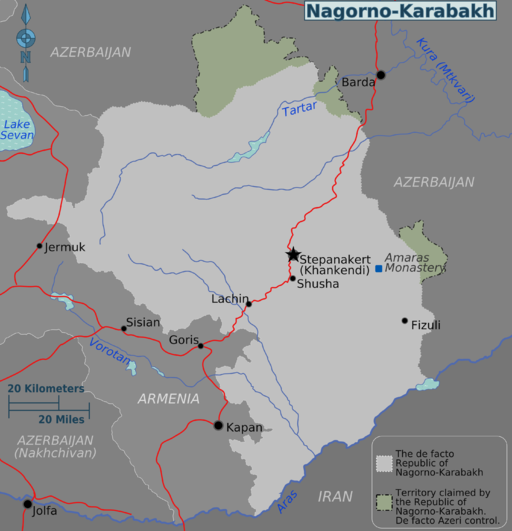Since 2020, Azerbaijan has attacked the Armenian people of Nagorno-Karabakh, or Artsakh, and in September 2023 ethnically cleansed them from their historic homeland.
Armenia has taken legal action against Azerbaijan claiming numerous violations of international law. What legal actions have been taken at both the International Court of Justice and the International Criminal Court. What are the causes of action and what might the consequences and impacts of these legal actions be?
Armenia is under intense pressure to negotiate a permanent peace with Azerbaijan. How could this normalize and legitimize Azerbaijan’s aggression? And what does it signal to aggressors internationally about the likelihood of punishment for this aggression? [ dur: 58mins. ]
- Tamara Voskanian is a cofounder of the Center for Truth and Justice (CFTJ), a nonprofit organization that documents atrocities and uses the evidence to bring perpetrators to justice. Last month Tamara represented CFTJ at the UN Committee Against Torture.
- Talin Hitik is an international human rights advocate focused on seeking accountability for war crimes and human rights violations. She also has worked as a legal officer at the Hague Conference on Private International Law and the Permanent Court of Arbitration and has served at the Ministry of Justice of Armenia, managing the European Court of Human Rights litigation department. She was a professor of international human rights and humanitarian law at American University of Armenia and Yerevan State University and most recently, was an Academic Affiliate at the University of Michigan Law School.
- Steve Swerdlow, esq. is Associate Professor of the Practice of Human Rights in the Department of Political and International Relations at the University of Southern California. He writes extensively as a human rights monitor for Human Right Watch in both the Central Asian region and in the Caucuses.
This program is produced by Doug Becker, Ankine Aghassian, Maria Armoudian and Sudd Dongre.
Podcast: Play in new window | Download
Subscribe: RSS


